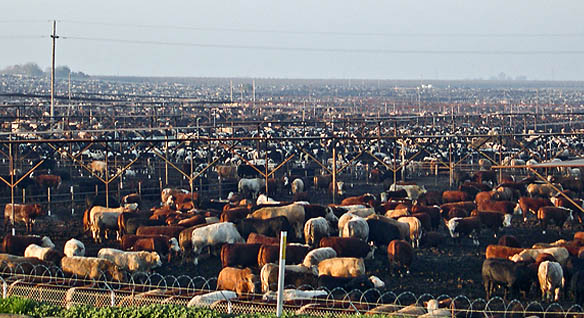Ireland faces a huge challenge in reducing its greenhouse gas emissions in the coming years. Taoiseach (Irish Prime Minister) Enda Kenny got into hot water last week for apparently saying one thing in his official speech to the Paris COP21 climate conference and another thing in unscripted remarks to journalists afterwards. Much of the subsequent controversy during the week revolved around the Irish government’s attitude to agricultural emissions and whether it was seeking special favours for the Irish agricultural sector in the current negotiations on setting national emissions targets for the period to 2030 in the framework of the EU’s 2030 Climate and Energy Package.… Read the rest
TTIP and the potential for US beef imports
Beef is generally considered to be a sensitive sector in the EU-US negotiations on a possible Transatlantic Trade and Investment Partnership (TTIP) agreement. Currently, imports of beef from the US are limited by high tariffs and by the refusal of the EU to allow the import of beef produced with the aid of pharmaceutical technologies such as hormones and beta-agonists (a class of non-hormonal compounds that act to increase feed efficiency).
Nonetheless, EU imports of non-hormone-treated beef from the US have been increasing in recent years. Different views have been expressed about the likely consequences for the EU beef market if market access were further liberalised under a TTIP agreement.… Read the rest
OECD reports EU farm transfers at lowest level ever
The OECD produced the 2012 edition of its Agricultural Policy Monitoring and Evaluation report during the week. This is the publication that keeps tabs on the transfers to and from farmers and consumers as a result of government policy interventions. It also usually contains a chapter on a special theme, which this year is devoted to fostering innovation and productivity growth in agriculture.
General findings
The results are summarised in a series of indicators, of which the most well-known is the Producer Support Estimate (PSE) usually expressed in percentage terms. It measures the percentage of farm receipts in a country that is due to public policies.… Read the rest


